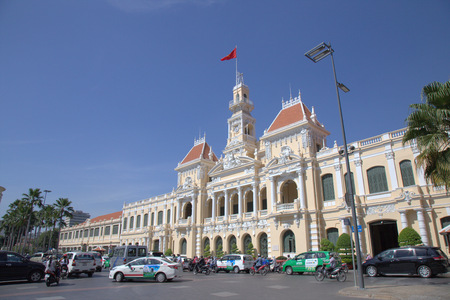23 November, 2018
In October, we reported on a first draft decree to implement the Cyber-security Law and noted many concerns about its overtly stringent terms and, in particular, the threat it caused to development of a thriving e-commerce/ Industry 4.0 landscape. Since then, the business community, among others, have been vocal on the shortcomings of the draft and offered up many comments and suggestions to address concerns. With the release of a new draft early Novembers, it appears that the Ministry of Public Security (MPS), the decree’s authors, have listened.
The first clue is in the length of the new draft: cut dramatically in size from 66 clauses to just 30, it necessarily doesn’t cover as much ground as the first draft. But the devil is always in the detail and, although the new draft is considerably less complex, particularly when it comes to issues affecting e-commerce, a close look reveals there are still areas worthy of further advocacy.
The question we have been asked most frequently is whether the Cyber-security Law itself, and its impending decree, govern every company on earth accessible over the Internet to Vietnam-based users. Taking the language of the “old” draft at face value, the answer was a clear affirmative, resulting in consequences both unreasonable and unnecessary to impose as well as impossible to enforce in practice, notably an obligation to localize data and establish commercial presences. The new draft takes a much more balanced and practical approach and suggests that a far more limited number of companies will be subject to these requirements in practice. In particular, these key obligations look set to only apply to companies (whether local or international) which meet all of the following conditions:
- providing one or more of specific services to users in Vietnam, including: (i) telecommunications, (ii) internet storage, (iii) internet data sharing, (iv) web hosting services, (v) e-commerce, (vi) online payment, (vii) payment intermediary, (viii) transportation connection service (think Uber), (ix) social network and social media, (x) e-gaming, and (xi) electronic mail;
- collecting, exploiting, analyzing, and processing the data of Vietnamese users (see below for what amounts to “data”);
- allowing its users to conduct activities prohibited by Articles 8.1 and 8.2 of the Cyber-security Law (i.e. – key Internet-based wrongdoings such as libel, anti-government propaganda, financial fraud etc.); and
- committing wrongdoings covered by Article 8.4.a of the Law [this appears to be a typo as there is no such clause in the Law] or Article 26.2.b of the Law (this obliges companies to prevent sharing of and delete certain kinds of “wrongful” information within 24 hours of receipt of a request from the Vietnamese authorities).
While criterion (1) is still very broad, it at least removes from the scope any and all companies that had service-offering websites accessible by Internet from Vietnam (such as our hypothetical Irish bank in our October blog post). Still, many other tech companies such as Amazon, Agoda, Google, Facebook etc. would fall squarely within one or more categories covered there. However, this is just the top of a funnel: even is a company fits within criterion 1 (and therefore almost certainly criterion 2) they will not automatically be required to localize data or establish commercial presences in Vietnam. Following approaches of other jurisdictions to assess and handle based on risk and conduct, such companies will only be required to take such steps if they fail to comply with what the Cyber-security Law expects them to do (read: cooperate with the government). It is good for business as now they can decide to cooperate and avoid strict monitoring rules.
Apart from this new and more tolerant “co-operate-or-comply” philosophy, the data which companies may need to store in Vietnam is also watered down slightly. The list now “only” covers information which can help identify users (i.e. – names, nationalities, occupations, residency, contact information, ID/passport numbers, credit card numbers, health records, biometrics) and other user-created data (i.e. data which users choose to upload, friend lists, groups users join or interact with). Data such as “philosophical belief” or “political views” are no longer covered in the new draft decree.
As ever, there is some bad with the good. The new draft seems to double down on granting power to the MPS to proactively examine the information systems of companies in Vietnam where it suspects wrongdoing. There is little or no due process involved in such cases.
In conclusion, the MPS has clearly taken on board much of the advice and criticism received following the broad and unworkable first draft decree and this is good news. Whether this will ultimately be reflected in the final decree however still remains to be seen.
For further information, please contact:
Giles T. Cooper, Partner, Duane Morris
gtcooper@duanemorris.com

.jpg)





